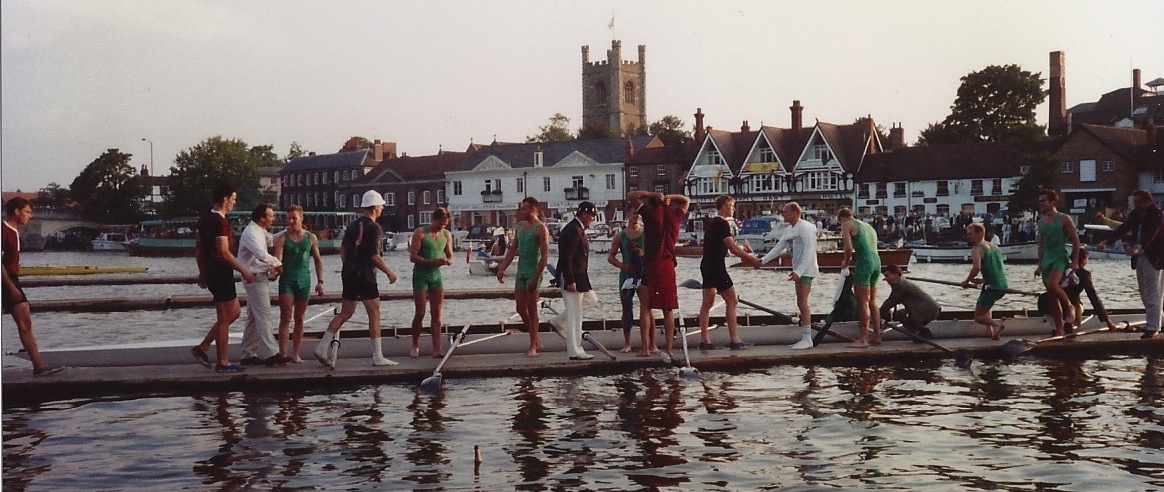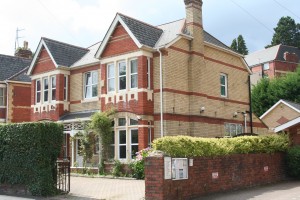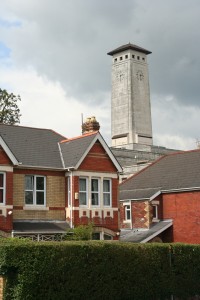6 Llanthewy Road in Clytha Park, Newport holds a unique place in rugby history. In 1897, this semi-detached house forced Wales out of international rugby for a year. The house was the home of Arthur Joseph Gould.
Gould was born on 10 October 1864 at 4 Bridge Street, Newport – an easy walk from Llanthewy Road. One of twelve children, six of the boys went on to play rugby for Newport and three were capped for Wales. Arthur captained both club and country.
Blessed with pace, Gould made an immediate impact. On his senior debut for Newport aged 18, playing at full back he disregarded instructions to kick for safety and ran-in two tries from long range. He played for Newport for 16 years between 1882 and 1898 but also ran-out for other clubs, including Southampton Trojans, London Welsh, Richmond, Hampshire and Middlesex when his work as a public works contractor took him to other parts of Britain.
After working away in the West Indies in 1890, Gould retuned to Wales and became Newport’s top scorer in its ‘invincible’ unbeaten season of 1891-2. During 1893-94, Gould was again top scorer, setting a club record that stands to this day: 37 tries in 24 games.
The first of Gould’s 27 Welsh caps was awarded in 1885. He captained Wales to its first triple crown in 1893, and became a lynchpin of the national side’s “Welsh formation” of four three-quarters that had first been pioneered by Cardiff. His undoubted talent and good looks made Gould the first super-star in his sport. He was widely compared with his cricketing contemporary W G Grace.
This adulation was to lead to a crisis. A public subscription in favour of Gould was launched in 1896 and initially enjoyed the endorsement of the Welsh Rugby Union. Donations flooded in from around the world. Opposed to the concept of allowing players to gain financially from the game, the other home unions broke off fixtures with Wales and pressured the WRU to declare the testimonial illegal. When support for the testimonial was withdrawn, the ensuing outcry in Wales forced the WRU to accede from the International Rugby Board. Wales were to take no part in international rugby between February 1897 and February 1898.
However at grass roots level across the British Isles, there was widespread admiration for Gould and great reluctance to loose fixtures against Welsh clubs. In a letter published in the Western Mail on 28 January 1897, J.B. Barnett of Pontypridd pointed at the hypocrisy of the situation: “Why Gould should not be allowed to receive the testimonial when W G Grace can be presented with thousands of pounds and a question of professionalism in his case not even be raised.”
For many, England’s RFU were seen as the principal agitators. The RFU secretary at the time, George Rowland Hill, was vehemently opposed to professionalism – despite earning his own living from the game. In his book Players, Tim Harris, describes Hill as having “a rare ability to start a fight in an empty room”. Hill’s terms as secretary (1881-1904) and President (1904-07) coincided with the defection of clubs in Lancashire and Yorkshire from the RFU – a schism that eventually led to the creation of the Rugby League.
Re-asserting its independence and its right to manage rugby in its own jurisdiction – as enshrined in the constitution of the International Rugby Board – the WRU participated fully in the gala dinner in honour of Gould at Newport’s Drill Hall on Easter Monday 1897. Sir JTD Llewelyn, president of the Union, presented Gould with the deeds to the house in Llanthewey Road in which he was already living.
In January 1898 Gould announced his retirement in an effort to defuse the situation. Wales was readmitted to the international fold – although Scotland didn’t resume fixtures until 1899.
After his rugby career came to an end, Gould worked as a rep for a local brewery. He died of a haemorrhage at home in Llanthewy Road on 2 January 1919.
His funeral took place on 6 January at St John’s Baptist Church, Newport. Rugby’s first super-star is buried in St Woolas Cemetery.
Rugby historian Tony Collins talks about how Arthur Gould’s Newport semi contributed to rugby union becoming cemented as the national sport of Wales in his podcast “Why does Wales Play the Wrong Type of Rugby.”





